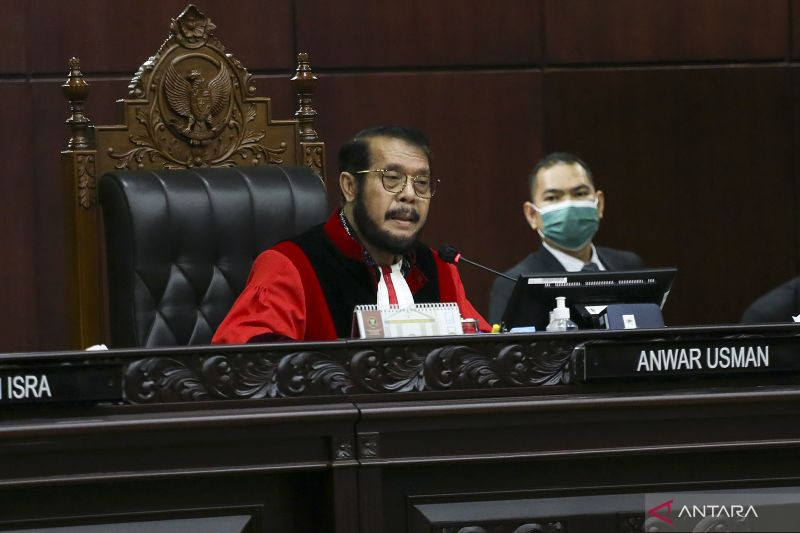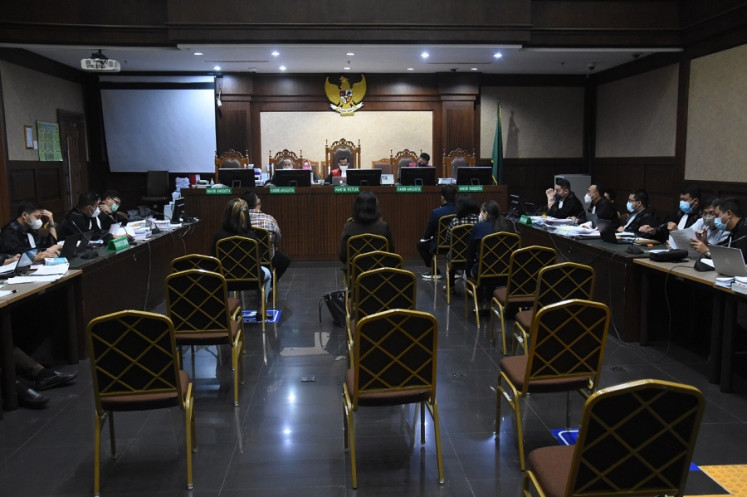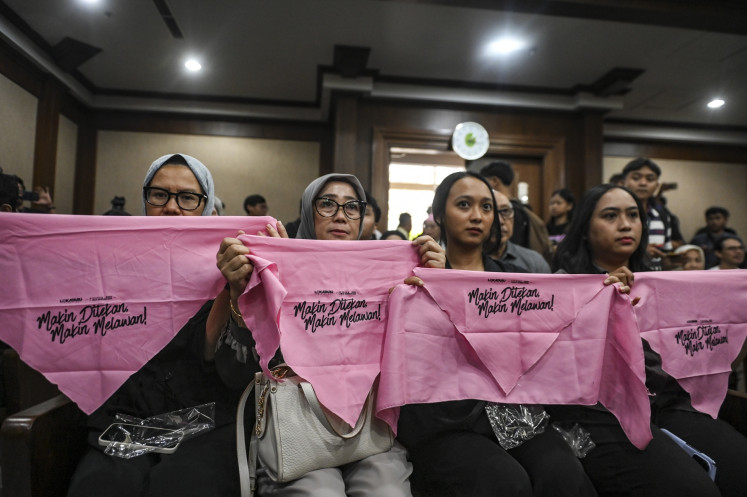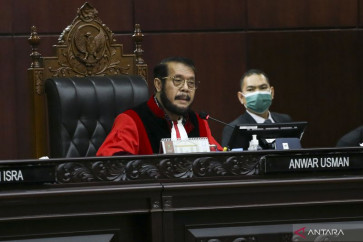Popular Reads
Top Results
Can't find what you're looking for?
View all search resultsPopular Reads
Top Results
Can't find what you're looking for?
View all search resultsRelief as top court rules against voting system change
The Constitutional Court has rejected a highly divisive petition seeking to change the legislative election voting system, which would have caused huge uncertainty with only eight months left before polling day.
Change text size
Gift Premium Articles
to Anyone
 Constitutional Court Chief Justice Anwar Usman leads a hearing in Jakarta on June 15, 2023 to read out the court’s verdict on a petition looking to change the legislative election voting system. The court passed the buck to the legislature to decide on an election’s voting system. (Antara/Rivan Awal Lingga)
Constitutional Court Chief Justice Anwar Usman leads a hearing in Jakarta on June 15, 2023 to read out the court’s verdict on a petition looking to change the legislative election voting system. The court passed the buck to the legislature to decide on an election’s voting system. (Antara/Rivan Awal Lingga)
A
groundswell of relief has swept political parties and pro-democracy activists after the Constitutional Court ruled on Thursday against a petition seeking to change the country’s voting system ahead of next year’s general elections, allaying fears of a potential delay to the polls.
The top court rejected a highly divisive petition seeking to restore the closed-ballot list system that was scrapped in 2008, wherein voters give political parties the mandate to appoint their legislative candidates, and which would have caused huge uncertainty with only eight months left before polling day.
In a closed-list system, voters cast their ballots solely for the party of their choice, which in turn chooses the successful candidates based on the proportion of the votes cast for the party. The system was abandoned in 2008 and replaced with the current open-list proportional voting system, whereby voters choose either their favored political party or the individual party candidates on the ballot paper.
The petition was filed by several politicians, including a member of the Indonesian Democratic Party of Struggle (PDI-P) of which President Joko “Jokowi” Widodo is a member. The largest party in the government coalition had backed a move to revert to the old voting system, on the grounds that the current open-list system encourages vote-buying and a cult of personality among candidates.
Reading out the ruling, Justice Suhartoyo acknowledged that the open system was not without its flaws, but that it was more inclusive and democratic, while the closed system lacked transparency, limited public participation and encouraged nepotism.
The real problem, Justice Saldi Isra said, was in the management of the political parties and their candidates, and therefore parties and legislative candidates should instead strive to improve their integrity, while noting that law enforcement was also crucial in curbing money politics.
The ruling was nearly unanimous, with only one justice out of eight, Arief Hidayat, a two-time House of Representatives appointee, expressing a dissenting opinion and suggesting a transformation of the current system into a “limited open system” in 2029 instead, stating that the current open-list system may potentially cause deep public divisions as local candidates tended to seek to get elected by “any means necessary”.


















